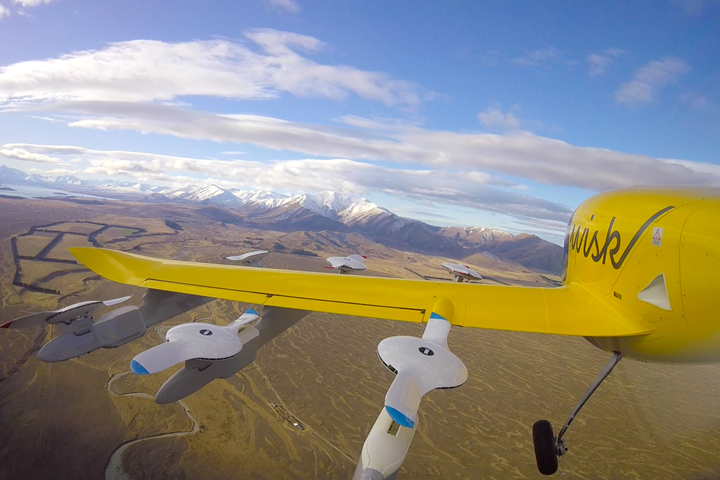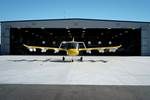Wisk to launch trial to advance autonomous passenger transport for UAM
Transport Trial to safely evaluate, test and demonstrate the integration of unmanned aircraft into existing airspace, supports New Zealand Government’s AITP.

Wisk's all-electric, self-flying air taxi during a recent test flight in New Zealand. Photo Credit: Wisk Aero LLC.
Wisk (Mountain View, Calif., U.S.) an urban air mobility (UAM) company reported on March 29 that it is progressing with its Transport Trial, which will advance autonomous passenger transport under the New Zealand Government’s broader Airspace Integration Trial Programme (AITP). Wisk is working towards rolling out the implementation phase later this year.
In February 2020, Wisk announced that it had signed a memorandum of understanding (MoU) with the New Zealand Government to establish
the Transport Trial under the broader AITP. Since then, both parties have been undertaking detailed planning of a highly structured and integrated program, with implementation of the trial expected to start in the second half of 2021.
Wisk is also bringing Insitu Pacific Pty Ltd. (Alderley, Australia), a Boeing subsidiary and unmanned aerial system (UAS) company, into the
program to support the trial. Through this partnership, Wisk says it will combine its leadership of autonomous flight operations and Boeing’s advanced technology and expertise to deliver on the passenger trial objective: to safely evaluate, test and demonstrate the integration of unmanned aircraft into existing airspace.
“Wisk has always seen the distinct advantages of New Zealand, including the country’s globally respected Civil Aviation Authority and flexibility for Remotely Piloted Aircraft Systems (RPAS),” says Gary Gysin, CEO of Wisk. “These factors, combined with the advantages of testing and operating in a relatively uncongested airspace and the innovative culture of early adoption, makes New Zealand uniquely positioned as a leader for autonomous UAM integration trials.”
Wisk says it brings more than a decade of autonomous electric vertical take-off and landing (eVTOL) expertise to the trial, including learnings from approximately 1,500 test flights and the backing of Boeing’s expertise in integrating piloted and autonomous technology. Built on the core values of safety and collaboration, the Transport Trial will address the challenges of airspace integration and help realize the significant opportunities of UAM across a range of industries and applications.
“New Zealand presents a unique opportunity and we are proud to have been recognized by the New Zealand Government as the first airspace integration industry partner,” adds Anna Kominik, Asia Pacific Region director for Wisk. “New Zealand’s focus on decarbonizing its economy as part of the electric transport evolution directly aligns with Wisk’s mission to deliver safe, everyday flight for everyone through effective, accessible and sustainable UAM solutions.”
For more information on the New Zealand Government's Airspace Integration Trials Programme, see here.
Related Content
-
The potential for thermoplastic composite nacelles
Collins Aerospace draws on global team, decades of experience to demonstrate large, curved AFP and welded structures for the next generation of aircraft.
-
Plant tour: Spirit AeroSystems, Belfast, Northern Ireland, U.K.
Purpose-built facility employs resin transfer infusion (RTI) and assembly technology to manufacture today’s composite A220 wings, and prepares for future new programs and production ramp-ups.
-
Composites manufacturing for general aviation aircraft
General aviation, certified and experimental, has increasingly embraced composites over the decades, a path further driven by leveraged innovation in materials and processes and the evolving AAM market.










.jpg;maxWidth=300;quality=90)




